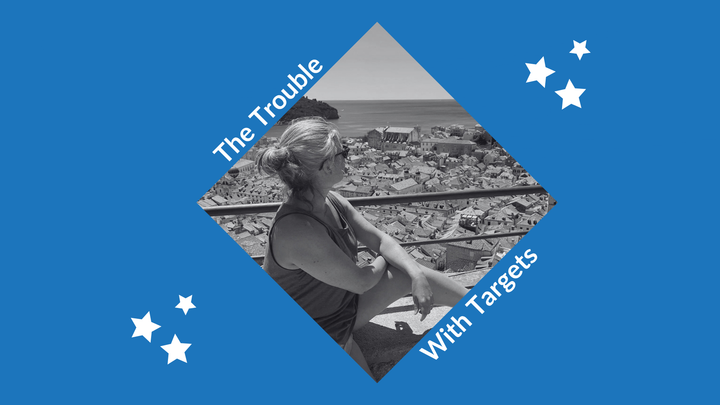How to Manage Your Cash Flow
You'll never have control of your business if you don't get control of your finances.

It still amazes me how many freelancers don't keep track of their finances. They don't keep business finances separate from personal money, and have no idea what's coming in and out. They seem almost shocked when a tax bill comes in and they haven't got any money set aside to pay it.
You'll never have control of your business if you don't get control of your finances.
Have a dedicated business bank account
Don't mix your personal finances and business finances. You might think it's ok, but it makes it harder to keep track of what's what.
Set up a separate current account for your business (even if it's just a standard current account, not technically a business one).
Any money you earn through your business should go into your business account, and any business expenses should be paid from it. Then pay yourself as though you are an employee.
I pay myself once a month, but you can pay yourself however you want. Set up a direct debit or just make a bank transfer to yourself whenever you want to take money out of the business.
This will help you keep track of income, expenditure and earnings.
Know your numbers
Your bank balance only tells half a story. It might look like you have plenty of cash, but have you accounted for upcoming bills, income tax or corporation tax, and emergencies? And what about having money set aside to cover time off?
You might have had a good month this month, but next month might be dire, and you need to be prepared.
Get to know your sales cycles. How long does it take from speaking to a prospect to agreeing a deal? And how long from agreeing the deal does it usually take before the money for that work hits your bank?
Personally, I invoice for work up front, so I never have to deal with late payments. But if you don't work like this, it will impact your cash flow. You might have a really busy month, but you won't get the payoff for another two months. Equally, you won't necessarily feel the effects of a quiet month straight away.
So make sure you know your numbers. What does your pipeline look like? What has been paid, what is outstanding, and what work has been agreed, but not yet paid?
If you've got a healthy bank balance, but there is nothing outstanding and not a lot in the pipeline, don't go on a splurge. Leave enough in to cover your costs.
Plan and budget
You can't plan for every eventuality, but you can make provisions.
Don't just spend whatever comes in and hope for the best. Plan for the future and set realistic budgets.
You know you're going to have a tax bill every year, so set money aside for it. You know what fixed bills will be coming in every month, so make sure you have accounted for them. And you know that if you go on holiday for two weeks, you probably won't earn as much that month, so make sure you have work lined up for your return.
Think about what investments you want to make in your business and, if you don't have the money for them right now, start setting a little aside each month until you do.
Work out a realistic split of income - for example, 20% tax, 5% for emergencies, 30% expenses, and 45% for yourself. And if you need to, have a separate account for the tax and emergency pots. Every time an invoice is paid, move 25% into the pot and 45% into your personal account. The rest stays in your business account to cover bills.
If you are leaving yourself short, then you need to increase your prices, generate more business or cut your costs.
Build a safety net
I pay myself the same each month, even when I have a bumper month. That means that I build up a nice little buffer to cover me when I take time out of my business or have a slower month.
If I have a few good months and my buffer is healthy, I pay myself a "bonus" or give myself a little pay rise or put a little extra in my pension.
If I have a couple of slower months, I don't need to panic because I know I still have money there to cover my costs. It means I'm never so desperate for work that I have to take on shitty clients. I can use quiet periods to work on my marketing or business development.
So don't spend everything you earn as soon as it comes in. Be sensible. Pay yourself as though you were an employee and only give yourself a bonus when you've earned it.
Get your pricing right
You will never have a good cash flow if your prices are too low. Let's say you need to earn £5000 per month to cover your business and personal costs, but you are only charging £20 per hour.
That means you have to work 250 hours a month (around 60 hours a week). And that's 250 hours of billable work. It doesn't account for time spent on non-billable tasks, like marketing, admin, networking, meetings, dealing with enquiries, putting together proposals, replying to emails and so on.
If you can't earn enough to cover your costs, you're always going to be dipping into future earnings to cover yourself.
Get consistency in sales
I know this sounds easier said than done, but if you get consistency in sales, then you'll have a more consistent income.
So make sure your marketing is doing its job. If you aren't generating the enquiries you need, then your marketing needs work. If you're getting plenty of enquiries, but none of them turn into paid work, then your sales process needs work.
And if you can't figure out how to fix the problem, book 90 minutes with me and we'll figure out where the gaps are and how to fix them.





